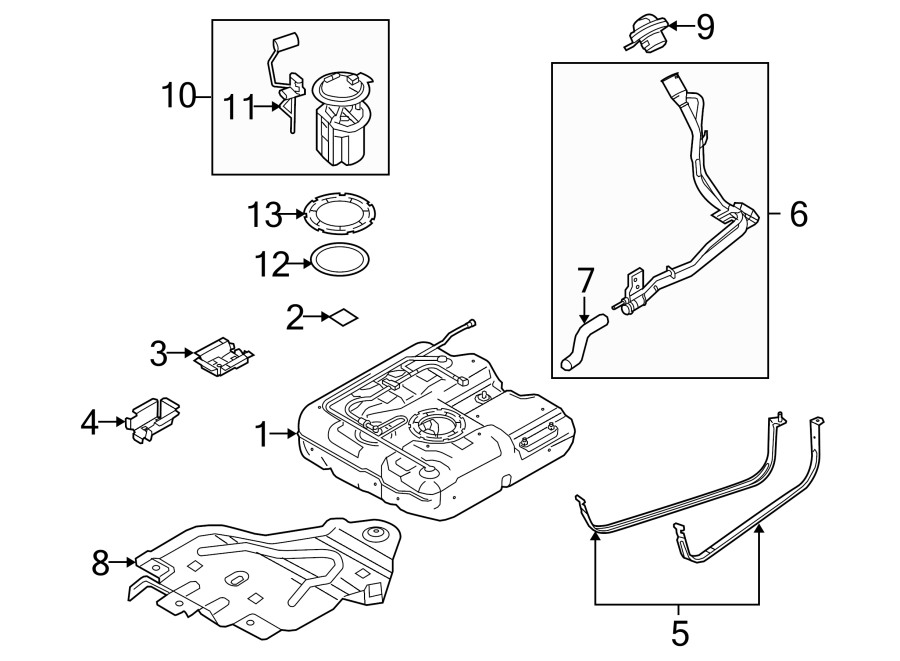The Ford Transit Connect has emerged as a frontrunner in the commercial van category, particularly noted for its impressive fuel economy and versatility. As urban centers grapple with rising emissions and the immediate need for sustainable transportation, understanding the fuel efficiency of vehicles like the Transit Connect becomes paramount. This review delves into the intricacies of its fuel economy metrics, the factors influencing its performance, and the implications for businesses and the environment.
The Ford Transit Connect is designed to cater to a diverse range of professions—from delivery services to construction. This adaptability is one of its charms, but how does it perform in terms of fuel efficiency? Equipped with a 2.0-liter four-cylinder engine, the Transit Connect boasts an estimated fuel economy of about 24 miles per gallon (mpg) in the city and 29 mpg on the highway. These numbers can fluctuate based on driving conditions, load, and maintenance. However, they set the stage for evaluating the vehicle’s overall environmental impact.
Fuel economy is often one of the foremost considerations for businesses. In a landscape where every dollar counts, the ability to maximize mileage translates to significant cost savings over time. The Transit Connect’s efficiency minimizes fuel expenditures, allowing companies to allocate resources to other essential areas. Imagine a small business that depends on efficient transportation; a van that averages 25 mpg instead of 15 mpg can lead to substantial savings. Each gallon of fuel conserved is also a step toward lessening the carbon footprint, aligning economic benefits with environmental responsibility.
One critical aspect influencing fuel economy is vehicle weight. The Ford Transit Connect is engineered with a focus on lightweight materials while simultaneously ensuring durability. This strategic design choice not only enhances fuel efficiency but also contributes to the vehicle’s handling capabilities. A lighter van accelerates and decelerates more effectively, further optimizing its fuel consumption profile.
Moreover, the Transit Connect is equipped with advanced technological features geared towards improving efficiency. The inclusion of Eco mode allows the driver to maximize fuel economy by adjusting throttle response and transmission behavior. Such features underscore the transition toward intelligent vehicle designs that prioritize sustainability while meeting the demands of commercial users.
In recent years, the conversation surrounding environmental sustainability has intensified. Many businesses are seeking to mitigate their impact on the planet, and choices in vehicle procurement can play a substantial role. The Ford Transit Connect represents a paradigm shift, wherein commercial vehicles contribute positively to the environment. Choosing a model with commendable fuel efficiency is more than just a financial decision; it embodies a commitment to eco-consciousness. This decision echoes through supply chains and impacts air quality, aiding in the global fight against climate change.
However, fuel economy is not the only environmental consideration. The emissions produced during operation are equally significant. The Transit Connect is engineered to comply with stringent emissions regulations, thereby ensuring that it contributes less to air pollution relative to other vehicles in its class. Lower emissions not only enhance air quality but also mitigate health risks associated with air pollutants, leading to healthier communities.
A compelling factor in the Ford Transit Connect’s favor is its array of optional fuel-efficient technologies. The hybrid variant, for instance, showcases a revolutionary approach to fuel consumption and elevates the standard for commercial vans. This advancement not only piques interest among consumers but also earns accolades from environmentalists. With stringent emissions regulations looming and public awareness of climate issues on the rise, manufacturers like Ford are increasingly motivated to innovate and provide sustainable alternatives.
It’s important to scrutinize the van’s real-world performance as well; anecdotal reports suggest that drivers have consistently achieved or exceeded the rated fuel economy. Factors such as driving habits, maintenance practices, and load capacity all play significant roles in actual fuel consumption. Engaging in regular maintenance and employing fuel-conserving driving techniques can yield optimal results, pushing the efficiency envelope further.
The impact of adopting fuel-efficient vehicles like the Ford Transit Connect transcends mere economics. It transforms the business’s ethos towards sustainability. Companies that prioritize eco-friendly practices can foster stronger relationships with environmentally conscious consumers, potentially leading to enhanced brand loyalty. As customers become increasingly aware of their purchasing power, businesses that lead with responsibility may find themselves at a competitive advantage.
In the long run, investing in vehicles that enhance fuel economy is not merely beneficial; it is imperative. Climate change is an existential threat, and every effort counts in counteracting its effects. The Ford Transit Connect is not only symptomatic of an evolving marketplace seeking efficiency but serves as a harbinger of necessary change within the commercial transportation sector.
In summary, the Ford Transit Connect exemplifies how modern commercial vans can achieve an elegant balance of utility and efficiency. As urbanization accelerates and environmental concerns mount, businesses must adapt by investing in vehicles that perform optimally in terms of fuel economy. The Transit Connect makes an assertive statement—combining operational capability with a commitment to sustainability is not only prudent but essential in today’s world. As we survey the future of commercial transportation, one thing is clear: the landscape is shifting, and those who prioritize fuel efficiency are paving the way towards a more sustainable tomorrow.
